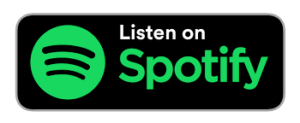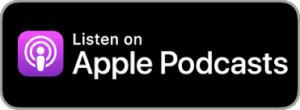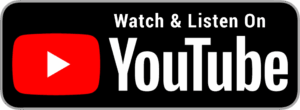Title: The Road To 100: What The First 99 Episodes Taught Me
Featuring: Peter Wilson
Peter: I am really excited to be with you today on our one hundredth episode of Biz and Life Done Well podcast. I can’t believe it. We finally did it After more than five years of producing this podcast, we’ve finally arrived at episode 100. I’m sure you can see some confetti going off behind me here. I’m pretty excited about it.
I don’t know if it’s well, actually, I don’t know if it’s excited or relieved to finally get here. I launched Business Life Done Well in September 2018. After many months of planning and fretting. And again, we’ve been at it for more than five years. Looking back on the episodes, my first guest was Doctor.
Don Koontz, who is our first client at Biz Marketing. He’s also my personal dentist and my brother-in-law. That was the kickoff. I was doing a little analysis of the episodes we’ve done. So out of the 99 episodes we’ve done, 55 of them have been related to some aspect of marketing.
35 are people telling their stories and how they got started in their endeavor. And then eight are people sharing their business related expertise. In all, we’ve had over 40 unique guests on the podcast, and I’m thankful for each one of them. And there’s three things I’ve learned along the way, so I just thought I would share that with you before we kinda look at the different episodes and what they mean to me. First thing that I learned was just get started.
You know, every day you if you’re planning on doing some endeavor like this, a creative endeavor, just get started. Every day you spend planning on how to make it perfect is just one more day added to your launch date. So my advice is if you wanna do something like a podcast or some, you know, something that’s gonna require some creativity and some production to pick a date, put it on the calendar, and make that your launch date. And then tell as many people as you can about your endeavor and your launch date because there’s this just implicit accountability that happens when you start telling people about something you’re gonna do, and you actually put a date on the calendar. And that’s exactly what happened to me.
I talked about doing a podcast, talked to a lot of folks, and eventually just said, okay. I’m gonna start it in September. And I even ended up two weeks later than I expected or that I wanted to, but we finally did go live September 2018. If you’re starting something like this, like a podcast, don’t worry too much about the gear. I spent three months researching and buying equipment.
And in retrospect, it was complete overkill. These days, you can get quality audio recordings directly off of a Zoom call. So there’s not, you know, there’s not a need to get too technical about things. You don’t need to have the perfect microphone, the perfect camera. This microphone I’m using here is the same one I bought five years ago.
Another thing I learned kind of the hard way, which is talk less and listen more. So I kinda cringe when I think back about how I would ask questions in my first year or two of doing podcast interviews. Yes. First year or two. It takes a while to figure this out, but, again, you just gotta keep at it.
And I would just spend way too much time asking a question and then not leaving enough time for my guests to answer the questions. I was more concerned with asking the next question. And over time, I learned to keep my mouth shut and let the person tell you know, give their answer and kinda expound upon what I had asked them. So now what I try to do is ask questions in a more open ended way and let my guests take it from there. One thing one other thing I learned was that the magic of editing in those cases where I would ask, you know, take five minutes to ask a single question, I would go in and edit my part of the interview.
I would take, you know, five, literally five minutes of asking a question, edit it down into just simply, boom, one sentence asking the question and then letting the person answer. That’s why, you know, some of the podcasts, that we’ve done sound better than others because I kinda figured that out as as I went. Another thing that I’ve learned along the way is we we did podcasts 2018, 2019, 2020. We were really gung ho. And then we just kind of slacked off, or I slacked off and really didn’t produce anything for quite a while and almost thought about giving up.
But I had this goal. I always had this goal of getting to a 100 episodes. And at the time, we had only produced, like, 30 episodes or something like that. So I started to really just dig in and start producing again. And the other thing I did was we have a director of marketing on our team, Emily Caddell, who holds me accountable.
So every month, we have a meeting about what content’s gonna get produced. And then each week, she’s bugging me every, Wednesday and Thursday for the content to actually get produced, and she makes sure that, all the creative goes along with it and that it gets announced on our socials, and it goes out in our email newsletter as well. So, having somebody to hold you accountable is really important. And kind of the last thing that I learned well, many things. Just one other thing I learned that I wanna relate today is you’re never too old to get started.
I think I was 57 perhaps, I guess, when I started this, 58, when I started this podcast. And one of my favorite stories from the podcast was episode nine with Doug Loft Lofstrom. Little hard to say his name. He is a guy from Edmonds who started his painting career at age 79. And up to that point in his life, he had never picked up a paintbrush, a fine art paintbrush.
I’m sure he painted around his house, but had never actually painted Started painting at 79. And by the by his 80 birthday, he had painted over 75 paintings, and that’s on episode nine of the podcast. And I would really encourage you to listen to that episode. He has a very emotional story about some work that he did for some people and some paintings that he produced that really helped some people find some healing and some hope. And it’s really amazing the story that he tells.
So that’s Doug Lofstrom. And I’m gonna take a look here now and just go through all the episodes that we produced. I’m gonna pull it up on my screen here, and I’m just going to walk through our website here. And if you’re just listening to the podcast, you’ll just have to listen along as I describe some of the podcast episodes that were, you know, what were meaningful and kinda what they were about. I’m just gonna touch briefly on some as we go through the list here.
So as I mentioned, we had Don Kuntz was our first step first episode. He is a dentist. The episode was called A Dentist with a Purpose, and that was a great insight into what Doctor. Kunz had done. And at the time, it was more than five years ago, he had just purchased a piece of real estate across the parking lot from his then current practice.
Since then, they’ve now opened up that practice. And in the story, you’re you you’ll hear him talk about having five operatories and wanting to get to seven. Now they have 12 at the new building. So it’s a pretty cool story, and he is is a good guy to listen to. The the next person I interviewed was Anna Allison, who was an owner of an Aussie Pep Mobile Pet Grooming franchise here locally as well.
She talks about her journey from working in the construction field to becoming a franchise owner of a mobile pet grooming business. And then episode three was Frankie Martinez, who he tells a great story about starting in the electrical fields, residential electrical. And he was working for this guy for about a year. And then the owner said, hey. I’m gonna be moving, and I’m just gonna give you the business.
He was like 19 years old, and he ends up with this business. Of course, he’s grown it since then, but pretty amazing story. Then we’ve got Brigg, Leland, who is the founder of Pivot Pass. It’s startup, a fitness startup, and John Marshall, who is a business coach. Theresa Whipple, who is the founder and CEO of MyEdmunds News.
She’s got an amazing story about and an amazing passion for local journalism, very local journalism here in Edmunds and Lynnwood and the local area here. And since that interview, of course, they’ve gone on to become a nonprofit of some type, and they have really expanded their coverage of news in the area. Couple other stories that I’d like to talk about would be the Jacksons, Anne Marie and Roger. They started a home goods company called Through the Sea, and you can hear their story there. She was a designer for Tommy Bahama, and Roger was a is an industrial designer.
Of course, here’s the, story that we talked about here with Doug and Doug Lofstrom. And, you won’t obviously see this on the audio, but here’s a picture of me with Doug and Carol in front of one of Doug’s paintings at the office that we used to have. And, again, that’s episode nine. And I’ll just leave links to these specific episodes in the show notes. Then we move on.
We’ve got a couple other great stories. We’ve got Ashley Wiggren, who is a real estate professional and yoga instructor. And she really has a great story about her work ethic and just really learning the world of work since she was 13 and working in a drive in over in Chelan. Andrew Ball is an acupuncturist, and he has a great story as well. And then we move on to Chris Goldman, and this is kind of a lot of the marketing stories.
And this is Chris Goldman talking about StoryBrand. He, at the time, was a StoryBrand certified guide. He is marketing messaging expert in with our organization. He was talking about five things about StoryBrand. If you’ve listened to our podcast, you know that we’re big fans of Donald Miller and the StoryBrand framework in addition to Alan Dib and his one page marketing plan.
A couple other stories of note here. We had during the pandemic, we decided to do a webinar series. At first, we weren’t sure what to do, and then we decided, hey. Let’s produce some webinars. Let’s reach out and do something for local businesses.
So we created a series, this one here, called covering your basis, small business survival guide guide marketing through this crisis. And we just offered some practical tips to businesses on how to message their customers and what to do during the crisis. So that ended up being, like, five episodes of the the podcast. A few others of note here. We had Jessica Brooks.
We had Kevin Schmidt, doctor Lindsey Harding. She is a naturopathic doctor. Anthony Langdon with Asset Roofing. Marcy Taylor. Marcy is a legal consultant, marketing consultant that I work with with a couple of the lawyers that we help.
And we did an interview about Clubhouse. Does anybody remember Clubhouse? That was the audio networking tool, so to speak, that was all the rage for about five minutes, and I’m not sure where it is at this time. But Clubhouse, we talked about Clubhouse and what it was. And then we also spoke to Caitlin Ferguson.
She is a virtual bookkeeper and talked about the benefits of hiring a virtual bookkeeper and just the benefits of having a professional do your books and, you know, not having your cousin do it for you. And then we also spoke with John Hall. John is a serial entrepreneur. He started Great Us. He started Switchbird, and he is just a great guy to talk to.
We’ve been using their products for many years. And so we had a conversation with him. We also spoke with Sarah Rivera and Joe Sherman. Joe is a coach, and he’s an MD and also a coach for medical professionals and helping them balance work and life and getting the most out of both and thriving. And then fast forwarding here a little bit, this was an interesting conversation we had with Sally Morgan, who is a voice and singing coach.
And I would encourage you to listen to this. That’s episode 51. That was really interesting. I was a little scared. I thought she was gonna make me sing, but she didn’t.
Another episode is with Nathan Caddell. Now this is Emily Caddell’s husband. He is a pastor in the Boston area and also a ultramarathon runner. So we talked about his journey to becoming an ultramarathoner. So if you’re interested in learning about what it takes and what motivates these ultramarathoners, Nathan is a great example of that, and he’s done many ultramarathons since we recorded that as well.
I also had a chat with Ethan Vassbinder, who’s the CEO, founder of College Movers, which is a kind of a labor company. They’ll do moving and other work for you, and they work with a lot of college students providing them with jobs to help get their income up. And then a couple other ones, we have a lot with Paul Lee. He is an SEO expert. He is our SEO expert.
And then we have here many episodes called the one PMP series. So this is specifically related to the one page marketing plan, which is the book by Alan Dib. We are certified coaches for this program. This is really kind of the bible that we refer to for marketing with our clients. So there are a lot of different aspects of the one page marketing plan that we’ve gone into with the podcast episodes.
In fact, one of the really good episodes here, we worked with Anne Gehring. She’s a leadership coach, and we actually took her through a real world example or real world going through the one page marketing plan. We’re still in the process of doing that. We’re we still have some more episodes to record. But if you’re interested in learning more about the one page marketing plan, you can listen to any of these podcasts.
And then some of these are getting onto video as well. So this one, I believe, is on video. This is, a real life example of doing an audit for a business for one page marketing plan. And then my most recent episode here was the green eggs and ham episode that had to do with my favorite business story for businesses, which is when you’re selling something, the challenge sometimes is just to get a customer to try what you’re selling. And if they try it, chances are they might like it.
So that is just some of the episodes that we’ve done, the first 99 episodes. This is on our website, bizmarketing.com. You just click on podcasts there, and that’s how you find that. And so to finish up, I would like to thank the individual folks that came on the podcast here. I’d like to start just in alphabetical order here.
Anna Allison, Andrew Ball, Anne Gearing, Anne Marie and Roger Jackson, Anthony Langdon, Ashley Wiggren, Brig Leland, Camille Gallinger, Chris Chavez, Courtney Tyson, David Koffer, Don Kuntz, Doug Lofstrom, doctor Lindsay Harding, Eli Neal, Eric Beyer, Eric Meltvett, Ethan Vassbinder, Frankie Martinez, Jessica Brooks, Joe Sherman, MD, John Hughes, John Marshall, John Hall, Caitlin Ferguson, Kevin Schmidt, Lauren O’Laughlin, Marcy Taylor, Mike Lovatti Laposa, Nathan Caddell, Paul Lee, Rachel Morgan, Sally Morgan, Sarah Rivera, Stuart Jenner, Theresa Whipple, and David Cieslak. And finally, I’d like to thank my team who without them, this would not be possible. And that is, Anne McKinney, Marcel Colon, Tim Hendershot, Chris Goldman, and Emily Caddell. Thank you. Thanks to all of you for helping put this podcast together.
I’d like to put in a pitch for stories as we dive into our next 100 episodes. We are looking for stories to tell, so we’d like you to reach out. Just shoot an email to podcast@bizmktg.com. If you’ve got a story to tell, you’ve got something related to business or some story that you think ought to be heard, let us know. Just give us a brief outline of what it is.
Just could be a couple sentences, and we’ll reach out and talk to you and see if it if it’s something that would be of interest to the people who listen to the podcast or watch the video now that we’re on YouTube. Thank you, everybody, for the first 100 episodes. Can’t wait to do more. Thanks for listening to this episode of Biz and Life Done Well with Peter Wilson. You can subscribe to us on iTunes, Google Podcasts, Spotify, and most of the other popular podcast platforms.
Please tell your friends about us and leave us a review so even more people will find out about us. Thanks again. We’ll see you soon.


